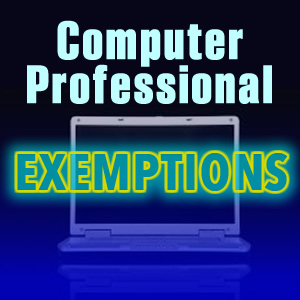 A recent US Labor Department investigation confirms the importance of monitoring any off the clock worked performed by employees and of maintaining proper record keeping. An employer was recently investigated by the US Department of Labor’s Wage and Hour Division for possible violation of the overtime and record keeping provisions of the Fair Labor Standards Act (“FLSA”). That employer was alleged to have failed to record, account and pay for all hours worked in a work week. The employer has agreed to pay the overtime back wages due and to take proactive steps to prevent repeat violations. Due to this agreement, the employer is paying nearly $6,000,000 in unpaid overtime wages and damages to 359 employees. In addition, that
A recent US Labor Department investigation confirms the importance of monitoring any off the clock worked performed by employees and of maintaining proper record keeping. An employer was recently investigated by the US Department of Labor’s Wage and Hour Division for possible violation of the overtime and record keeping provisions of the Fair Labor Standards Act (“FLSA”). That employer was alleged to have failed to record, account and pay for all hours worked in a work week. The employer has agreed to pay the overtime back wages due and to take proactive steps to prevent repeat violations. Due to this agreement, the employer is paying nearly $6,000,000 in unpaid overtime wages and damages to 359 employees. In addition, that
employer is agreeing to additional terms such as compliance training.
In light of this, we caution employers of the risks associated with non-exempt employees performing off the clock work such as checking and/or responding to emails after hours, coming in early or staying late to complete work assignments, and/or working through lunches. To the extent this time is recorded and paid in accordance with the Fair Labor Standards Act, such practices are acceptable; however, when these employees are performing this work and are not properly recording and/or receiving payment for this work, then that violates the FLSA. Under the FLSA, employers who violate the law are generally liable to employees for their back wages as well as an amount equal to those back wages in liquidated damages.
Accordingly, the damages associated with FLSA violations add up quickly. In addition, the FLSA requires employers to maintain accurate time and payroll records and prohibits retaliation against employees who exercise their rights under the law. In conjunction with this, we remind employers of the importance of ensuring that their employees are properly classified under the FSLA.


